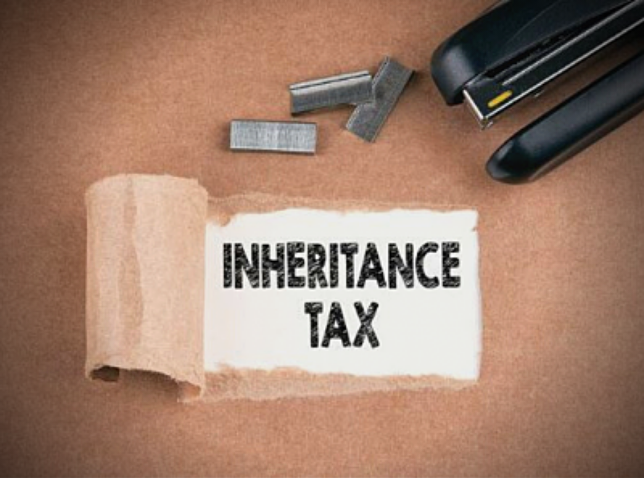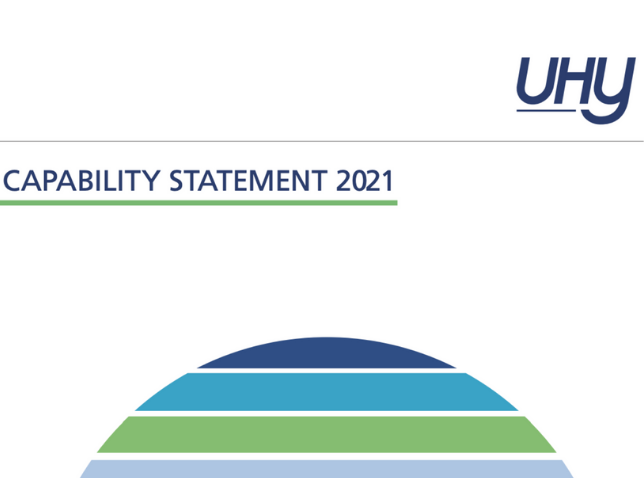UHY International: Inheritance Tax rates in G7 and EU countries ten times higher than emerging economies

This post is also available in: Français (French)
Issued by UHY Victor LLP
Inheritance Tax rates in G7 and EU countries ten times higher than emerging economies
- No inheritance tax in emerging economies such as China, India and Russia
- Major economies under pressure to abolish unfair ‘death tax’
- Emerging economies resist introducing IHT in order to attract investment
Inheritance tax rates in G7 and EU countries are ten times higher than those in emerging economies*, according to UHY, the international accountancy network.
Individuals in G7 countries pay an average of 17% (503, 321 USD) and those in EU countries pay an average of 10.3% (306,104 USD) in inheritance tax (IHT) when passing on 3 million USD in cash to their beneficiaries**. In comparison, individuals in emerging economies pay an average of 0.9% (2,584 USD) when passing on 3 million USD in cash.
The disparity is also reflected in lower value bands. EU individuals pay on average 5.1% (38,502 USD) in IHT on 350,000 USD in cash versus 0.7% (2,326 USD) in emerging economies. Similarly, average IHT rates in the EU on 750,000 USD are 5.1% (38,520USD), compared to 0.7% (5,604 USD) in emerging economies.
UHY says IHT has been labelled an unfair ‘ death tax’ and some commentators have called for it to be abolished. Families in economies with high IHT rates can be hit with considerable tax bills at a time when they may be dealing with a bereavement.
IHT is also said to disincentive entrepreneurs from building their wealth on the basis that having faced high-income tax bills throughout their careers, their dependents then face high IHT charges on any residual wealth.
Dennis Petri, Chairman of UHY International and Partner at UHY Advisors, MI, US: “There is a stark difference in IHT between slower growth economies and faster-growing economies. The question is how much taxes on inheritance really discourage wealth creation.”
Some Governments of EU countries have faced pressure to reduce IHT rates to ease the burden on taxpayers. For example, IHT rates paid in Denmark and Belgium are consistently high across all the wealth bands covered in the study (see tables below).
Denmark is renowned for having a broad welfare system in which is funded in part by revenue generated from high tax levels, including income tax, property tax and IHT. However, criticism of high IHT rates in Denmark has grown in recent years.
High IHT rates in Belgium have pushed some high earners to use loopholes in the country’s tax system to avoid paying steep IHT bills. Whilst the Belgian Government introduced reforms in 2018 to help simplify the IHT system and to try to close loopholes, it has not reduced the tax rate.
The UK has also been criticised for making no substantial changes to the IHT system since the 1980s and for freezing the IHT threshold at 418,541 USD over a decade. This has served to increase the number of people being caught by the tax as incomes rise – HMRC collected a record 6.7 billion USD from IHT receipts in 2018/19***.
However, UHY adds that IHT has been used in some countries to help tackle wealth inequality. A recent study suggests**** that countries may need to go further than taxing incomes to help redistribute wealth to younger generations.
No inheritance tax in some emerging economies
Emerging economies that do not impose IHT include China, India and Russia. This compares to individuals in Japan who pay 38.5% (1.2million USD) in IHT when passing on 3 million USD of cash – the highest level in the study.
Dennis Petri adds: “Many emerging economies are especially keen to encourage wealth creation – levying very low or no IHT is seen as an important way to help achieve that.”
“Entrepreneurs may be incentivised to earn more in these countries as they can pass on their wealth to the next generation without the taxman interfering.”
“In emerging economies, inheritance tax can play a vital role in helping fund the early stages of new businesses, especially in countries where there are less traditional forms of finance available.”
Individuals in France pay the second-highest rate of IHT at 34.4% (1 million USD), with individuals in the UK paying the third-highest rate at 29% (869,674 USD).
Dennis Petri adds: “This study sheds light on the heavy tax burden that is shouldered by wealthy individuals living in some economies. There is the risk that an overbearing IHT regime could drive wealthy, mobile individuals to move to countries with more lenient regimes.”
“Despite many calling for ‘death taxes’ to be radically reformed or abolished altogether, Governments are often reliant on the substantial income streams generated by IHT receipts. This could suggest that IHT looks set to stay for the foreseeable future.”
Emerging economies resist introducing IHT to attract investment
Many emerging economies have resisted introducing IHT in an effort to attract investment. These countries include Croatia, Malaysia, Uruguay and Mexico.
Wealthy individuals may be attracted to set up businesses in countries with no IHT. This could support job creation, business investment and provide a source of vital economic growth.
*Emerging economies include Argentina, Brazil, India, Malaysia, Mexico, Poland, Russia, China, Croatia, Romania, Uruguay.
**Source: UHY studies tax data in 28 countries across its international network. The study compared the ‘inheritance tax’ paid on 3 million USD of cash and real estate worth 3 million USD. The calculations are based on the deceased having two heirs receiving an equal share – both adult, non-dependent children. Both the deceased and heir are tax residents in the country
***Source: HMRC
****Source: OECD
***** US charges no Federal Inheritance Tax on these sums. In those few states that do charge Inheritance Tax that tax does not apply if the individual relocates to one of the larger numbers of states that charge no tax eg Arizona, California, Florida, Texas etc.
All 28 countries ranked by the amount and the percentage of IHT individuals pay on handing down 350,000 USD of cash – G7 and EU countries impose the highest IHT rates on cash

All 28 countries ranked by the amount and the percentage of IHT individuals pay on handing down 750,000 USD of cash – G7 and EU countries impose the highest IHT rates on cash

All 28 countries ranked by the amount and the percentage of IHT individuals pay on handing down 3,000,000 USD of cash – G7 and EU countries impose the highest IHT rates on cash

Notes for Editors
To learn more about the services and capabilities UHY Victor LLP can offer, please contact Jonathan Levy, Partner, at Jlevy@uhyvictor.com
About UHY Victor LLP
UHY Victor LLP is a member of UHY, an international network of independent accounting and consulting firms with offices in major business centres throughout the world. Further information can be found at uhyvictor.com
UHY global press contact: Leigh Lyons on +44 20 7767 2624
Email: l.lyons@uhy.com – www.uhy.com
Nick Mattison or Alex Williams
Mattison Public Relations
+44 20 7645 3636, +44 779 320 7325 or email: alex.williams@mattison.co.uk
About UHY
Established in 1986 and based in London, UK, UHY is a leading network of independent audit, accounting, tax and consulting firms with offices in over 300 major business centres across 100 countries.
Our staff members, over 8,200 strong, are proud to be part of the 16th largest international accounting and consultancy network. Each member of UHY is a legally separate and independent firm. For further information on UHY please go to www.uhy.com.
UHY is a member of the Forum of Firms, an association of international networks of accounting firms. For additional information on the Forum of Firms, visit www.forumoffirms.org


